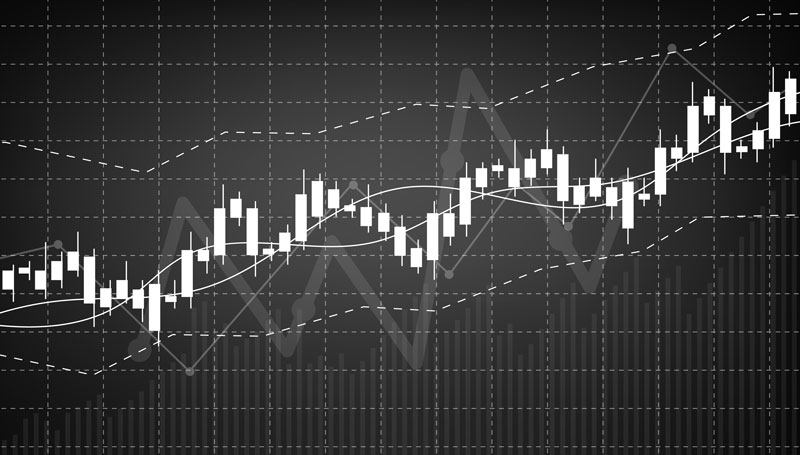

14.02.2020 – Daily Report. The stock market experts assume that the central banks will somehow already flood away the economic damage of the corona virus. The World Health Organization is also pouring oil on the waves because of the recent increase in cases. The DAX marks an all-time high in early trading.
DAX with new record
Despite the drastic increase in infection figures reported yesterday, the DAX was robust on Friday. The German leading index climbed to 13,783 points on Friday morning – a new record high. Most recently, the indicator was still up 0.2 percent at 13,771 points. US futures also rose by around 0.2 percent.
It’s all a question of counting
Brokers referred to the latest statement of the World Health Organization – the WHO tried to smooth the waves. For example, the sudden rise in cases in China on Thursday does not mean that many more people have suddenly become infected with the virus. Rather, the approximately 14,000 newly reported cases are of patients in whom the virus has not been detected in laboratory tests – but who, according to the doctors, have indeed become infected with Covid-19.
Meanwhile Beijing reported more than 5,000 new infections on Friday. This brings the total number of people infected to almost 64,000.
German economy stagnates
Meanwhile, the figures for German gross domestic product were sobering: The zero growth in the fourth quarter of 2019 was worse than most experts had expected. Many had hoped for at least a slight increase of 0.1 percent. Yet the effects of the China epidemic have not yet reached the Western economy. This is likely to change soon.
Alibaba warns of the Black Swan
The Chinese online retailer Alibaba expressed itself in this direction. Group CEO Daniel Zhang warned that Covid-19 could become a “black swan event”. In other words, an unexpected horror for China and the global economy.
Reuters attempted to quantify the impact of the epidemic by interviewing 40 economists worldwide. According to the survey, China’s gross domestic product will only increase by 4.5 percent between January and March compared to the same quarter last year. In the last three months of 2019, growth had still amounted to 6 percent.
No clear trend in Asia
The Asian stock markets reacted unevenly to the news. The Chinese CSI-300 gained 0.7 percent to 3,988 digits. But the Nikkei 225 lost 0.6 percent to 23,688 points.
New York lurks below the summit
Meanwhile, Wall Street continued to count on possible intervention by the Fed, which had recently signalled that it would keep an eye on Covid-19 as a new factor in economic matters. The US leading index Dow Jones finally lost 0.4 percent to 29,436 points. The S&P 500 closed 0.2 percent lower at 3,374 points and the Nasdaq 100 technology index fell 0.2 percent to 9,596 jobs. These two indices set new records in the course of trading, but fell back afterwards. Overall, this was the second-highest close of all time. One could almost think that it was nothing.
US banks are in the doldrums
However, a look behind the scenes shows that mistrust is rampant. American banks are cautious and are reluctant to lend money to each other. Ergo, the Federal Reserve is already stepping in. The blog ZeroHedge reported that the most recent repo auctions were almost twice oversubscribed, the strongest demand since last September – at that time the US banking market was on the brink of the reocalypse, i.e. drying up. The Federal Reserve has now pumped a further 79 billion dollars into the market.
What the day brings
In the diary there are several important events at the end of the week, you can find the overview as always here: Market Mover
At 2:30pm it gets exciting on US equities, dollars and treasuries when the retail sales figures for January are reported.
Same with import and export prices as well as industrial production.
Also January’s capacity utilization.
At 4:00pm the University of Michigan will publish its consumer confidence.
Simultaneously the stocks for December are reported.
The Bernstein-Bank wishes successful trades and a relaxing weekend!
Important Notes on This Publication:
The content of this publication is for general information purposes only. In this context, it is neither an individual investment recommendation or advice nor an offer to purchase or sell securities or other financial products. The content in question and all the information contained therein do not in any way replace individual investor- or investment-oriented advice. No reliable forecast or indication for the future is possible with respect to any presentation or information on the present or past performance of the relevant underlying assets. All information and data presented in this publication are based on reliable sources. However, Bernstein Bank does not guarantee that the information and data contained in this publication is up-to-date, correct and complete. Securities traded on the financial markets are subject to price fluctuations. A contract for difference (CFD) is also a financial instrument with leverage effect. Against this backdrop, CFD trading involves a high risk up to the point of total loss and may not be suitable for all investors. Therefore, make sure that you have fully understood all the correlating risks. If necessary, ask for independent advice.
